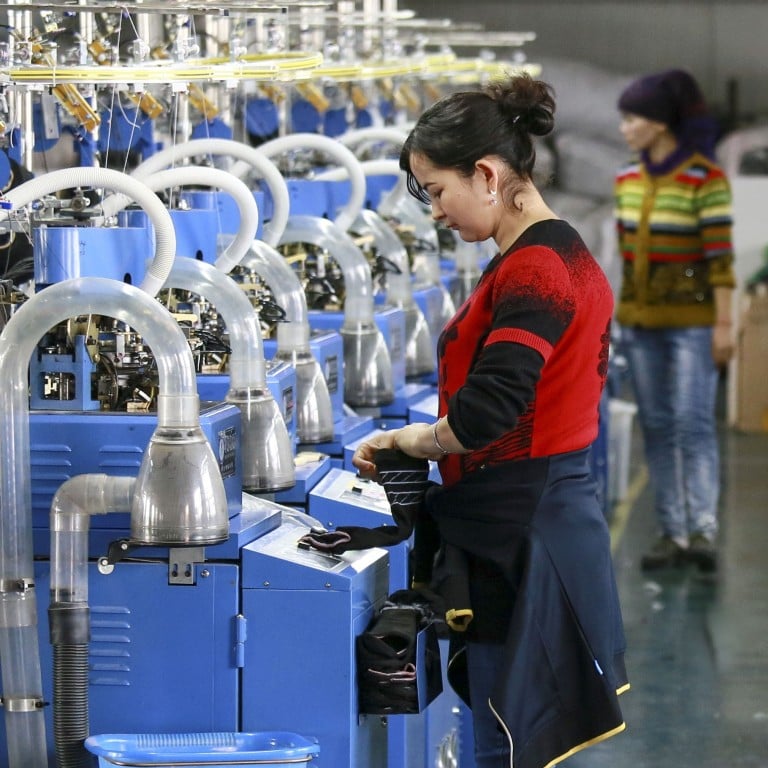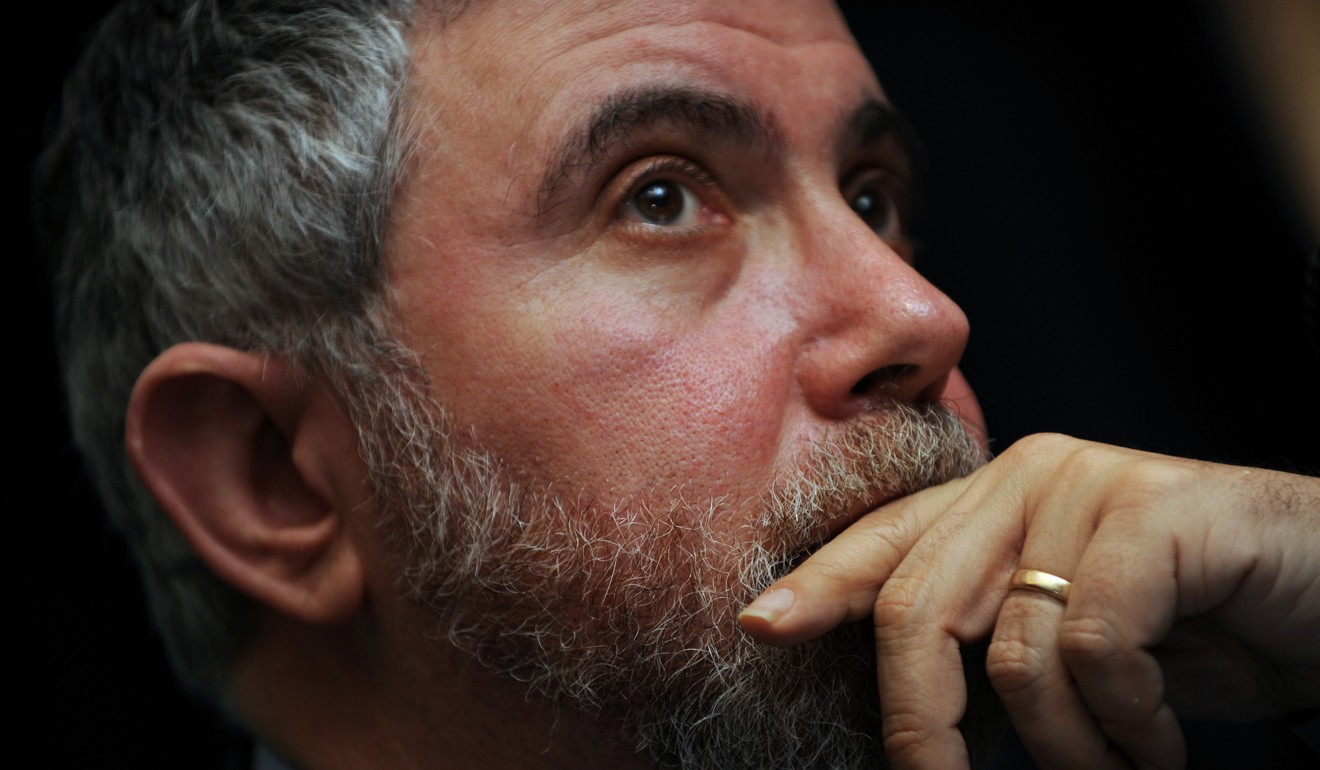
‘It’s technology, stupid’ – those who say trade is driving inequality and populist politics are looking in the wrong place
- The news tends to follow trade wars and reports of downgraded growth, but we should look at technological disruption
- Economists and the IMF are starting to draw attention to its impact on labour markets and the challenges of responding
Amid the inevitable talk of tariffs and populism, however, there’s some important thinking afoot among the IMF’s economists – the looming threat to a globally integrated economy may be less about Chinese subsidies and more about the march of technological progress.
If true, bankers and investors should all stop bemoaning the drama around Brexit and tariff escalation and start thinking hard about how we adopt new technology and train the workforce. Machine learning, automation and robotics, the research suggests, is likely to do more to undermine political cohesion and global growth than any trade skirmishes ahead.
Of course, as markets echo each trade headline and every consumer data point, investors will inevitably focus this week on further downgrades to global growth forecasts. Ninety per cent of the world’s economy is now officially slowing this year, according to the IMF, a sharp reversal of the situation just two years ago when growth for three-quarters was speeding up.
There will also be hand-wringing around models that predict a major downturn might trigger US$19 trillion in corporate defaults – more than the damage caused by the financial crisis.
In a preview speech last week, the IMF’s new chief, Kristalina Georgieva, urged policymakers to address what she calls “fractures” around trade and global supply chains. She reiterated the standard prescriptions that include more coordinated fiscal and monetary policy as well as targeted structural reforms.
Can the new IMF chief smash the system that gave her the job?
Yet a striking chapter in the IMF’s latest World Economic Outlook challenges the prevailing narrative that cheap labour in poor countries lies at the heart of the inequality that fuels populist politics in Europe and America. In an attempt to explain regional inequality within countries, the IMF’s experts place the blame squarely on the march of progress rather than unfair Chinese trade practices.

Even in dry social-science prose, their conclusions should turn heads: “Although much discussed, trade shocks – in particular greater import competition in external markets – do not appear to drive the differences in labour market performance between lagging and other regions, on average.
“By contrast, technology shocks – proxies by declines in the relative costs of machinery and equipment capital goods – raise unemployment in regions that are more vulnerable to automation, with more exposed lagging regions particularly hurt.”
The report appeared coincidentally at the same time as a mea culpa issued by Nobel Prize-winning economist Paul Krugman around his profession’s (and his own) underestimation of the impact of globalisation on jobs and inequality.
China’s digital drive shows how tech can lift people out of poverty
While these disruptions should not have a large impact on broad measures of inequality in the long run, he confesses that the speed of the disruption that started in the late 1990s has delivered lasting damage to individual industries and communities.
But Krugman stops short of arguing for a tougher tariff policy as he explains that the major disruptions from trade are mostly old news. Global supply chains now depend on this global labour market and shutting them with tariffs and other trade sanctions would do more harm than good.

Of course there are adjustments to global trade and financial rules that may help address populist discontent, and these will squeeze corporate profits. Little infuriates voters more than multinationals that don’t pay taxes, and recent talk of cooperation suggests many tax bills will rise. Large tech giants may also face greater regulation as consumers increasingly worry about lost privacy.
Yet the much harder questions remain how governments and businesses will address the next major disruption to the global economy, which is coming from technology rather than trade. Some of the answer includes targeted support for beleaguered communities and retraining for displaced workers, but this has rarely done much to absorb the shock.
The question arises on the margins of the US presidential election but has yet to enter the main debate. “It’s Technology, Stupid!” isn’t much of a bumper sticker, but if the assembled investors and economists spend all their time in Washington this week talking about trade and tariffs, they will be fighting the last war.
Christopher Smart is chief global strategist and head of the Barings Investment Institute

